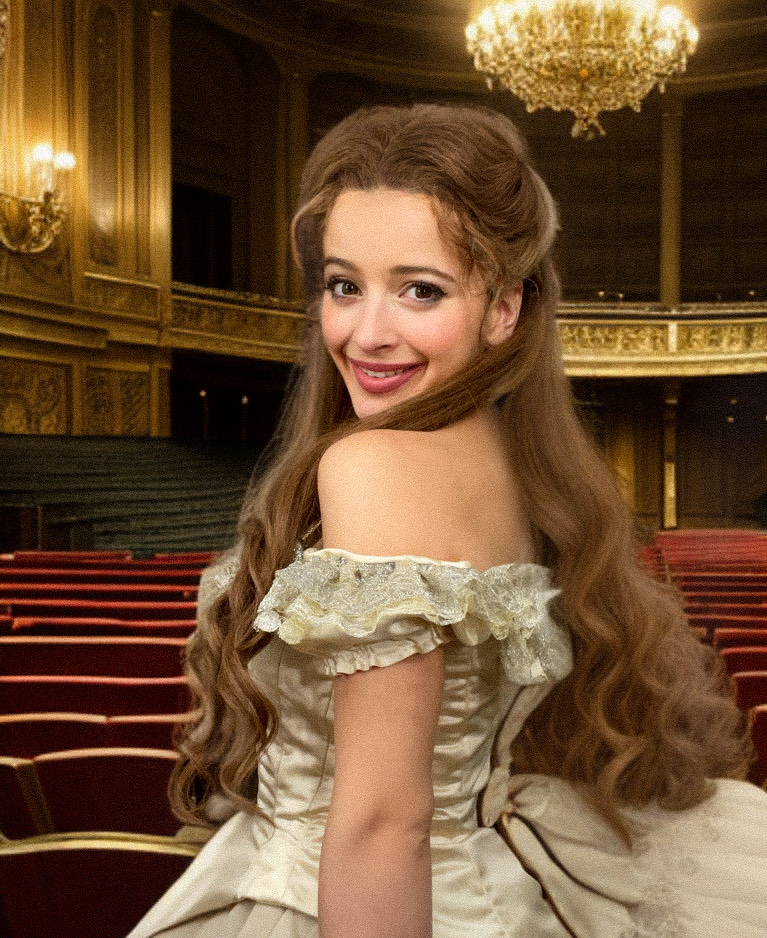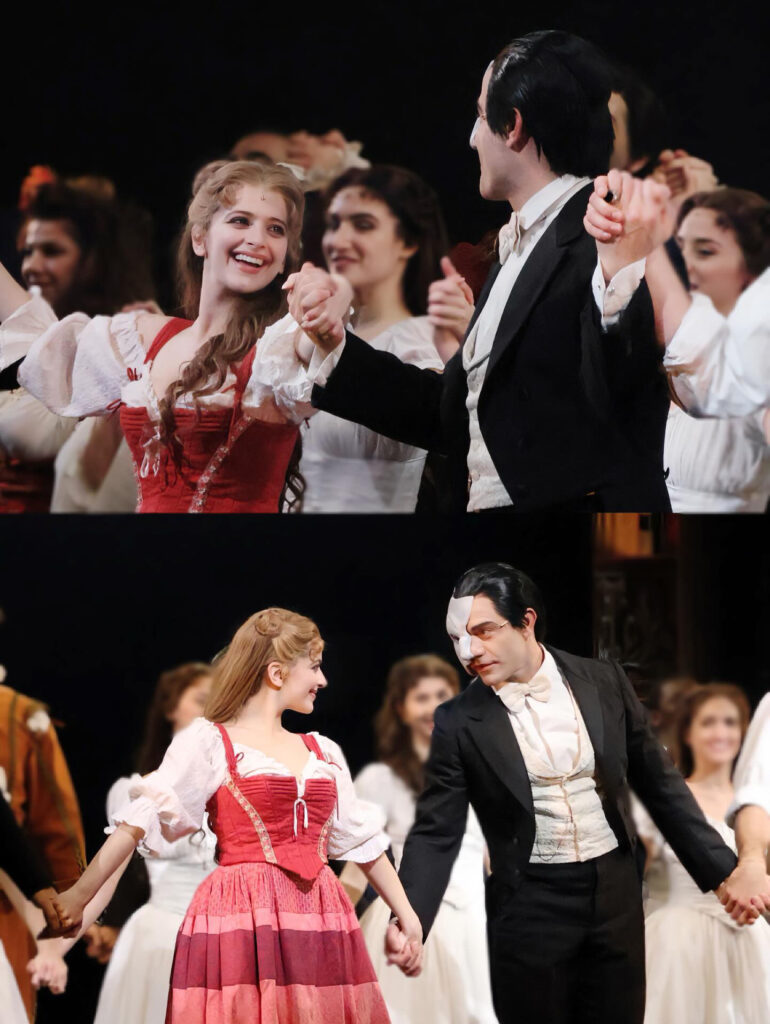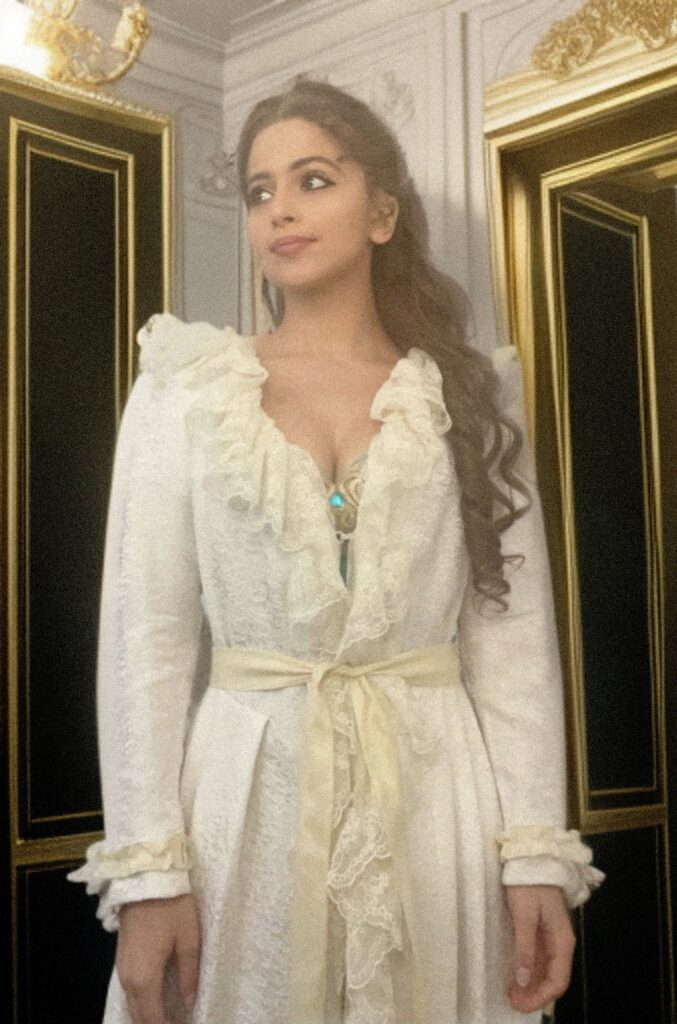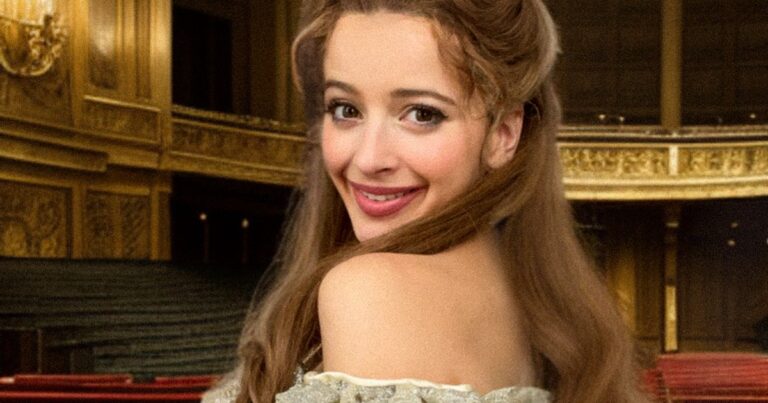Amelia Milo through life and music(als):
a soulful talk with The Phantom of the Opera star
by Gianluca Colazzo and Mariano Rizzo
In 2023 Italian theatergoers were gifted with a memorable production of The Phantom of the Opera, Sir Andrew Lloyd Webber’s record-breaking musical. The Italian Phantom was brought to life in Trieste and Milan in July and October; the show boasts an international cast and a staging that, while staying faithful to the source material, at the same time is full of surprises.
One of the greatest surprises certainly was Amelia Milo, who portrayed Christine, the female lead. Endowed with a crystal-clear and nuanced voice, the young Italian-American soprano was able not only to sustain one of the most demanding roles in the contemporary musical, but also to give the audience a surprisingly mature and exciting performance.
We had the chance to ask her a few questions about this wonderful experience, and we discovered not only a self-aware and confident artist, but also a soulful human of rare beauty and sensitivity.

You started out as an independent singer/musician. What is it like to debut in such an important production as “the Phantom of the Opera”, along with international stars such as Ramin Karimloo and Earl Carpenter?
It is an incredible feeling to be in The Phantom of the Opera alongside such a talented and skilled cast. I’ve been learning so much from both Ramin and Earl. They’ve inspired me to grow as an artist and to find my own confidence. It’s a real treat to get to act such a special story alongside them. I’m very grateful as their undeniable talents inspire me in so many ways!
The Phantom of the Opera is a 1986 musical based on a XIX century novel; it is a classical tale, still it attracts audiences from all over the world. As an artist who worked in this production, what do you think is the secret of such a durable success?
Phantom is a timeless story because it is complex and nuanced. Every character is grappling with their own unique perspectives and challenges. The root of the tale is about love, empathy, and understanding the complexities of human fragility and psychology. I believe this is what makes it a classic that audiences keep returning to. The original score captures elements of old world opera but with a modern twist, it makes the music timeless and impossible to listen to just once. As an actress, I never get tired of playing this show, because I always find something new or deeper about the story to dive into.
Unlike her previous incarnations, the Christine we saw on Italian stages showed an unprecedented strength instead of being a typical, frail “damsel in distress”. Was this a directorial decision, or did you have the chance to put something of your personal life in the character? On the other way round, did Christine change you in some way, both artistically and personally?
Christine is a character that means a lot to me and a character I have thought about very deeply, even before I got the chance to portray her professionally. Christine is vulnerable, but that is her strength. Alongside of our director I had the chance to find my own version of Christine. It’s been an evolution of discovery as our show continues to grow. Her heart is as strong as it is empathic. I have definitely grown so much throughout this process as both an artist and human being. Christine struggles and fights to find her own voice and ironically this echoes my own personal life as I grow as an artist and young woman in my profession and in the world.
Which were, if any, the major difficulties in portraying Christine (both vocally and actorially), and which were the most enjoyable parts? Was it difficult to act/sing according to the complex directions and dealing with such scenical machines?
This is definitely a challenging role on a lot of different levels, let alone to do it 8 times a week! I pull from every aspect of my being— physically, spiritually, emotionally, mentally and vocally, and am on stage for over 2 hours. It requires a lot of focus and agility with all the moving mechanics as well. The most challenging aspect for me has been learning how to control and support my voice while crying during the heart wrenching scenes, as well as maintaining my overall endurance. It’s a balancing act. The most enjoyable part for me is being able to get lost in the story and music. It’s a very rewarding experience to play such a dynamic, complex and challenging role.

How do you feel the Italian audiences have greeted your performance?
The Italian audiences are so warm, sweet and enthusiastic. I love performing for them and meeting them at the stagedoor! They warm my heart with their love for the show and my performances.
Your voice is incredibly versatile: you recently released a single titled “Siren”, which incorporates some classical/lyrical vocals in a pop-oriented song: do you enjoy merging different styles in your production?
Thank you! Yes, I love to sing across multiple genres. To me, the voice is one instrument that can play upon different styles— much like a piano. I have been classically trained, but I love writing and dancing to pop music. My classical background is always inspiring my pop writing and vice versa. My dream has always been to fuse of my greatest influences, which is both classical music and pop.
Speaking about musicals and opera: since your style combines both genres, is it more difficult or fun to switch from one to the other?
It is very fun for me to switch between the styles, as it is the most authentic expression of my voice. I’m not necessarily putting on an opera or pop voice, both are my authentic sound in different contexts. It’s just what my voice loves to do. I’m very particular about my vocals and recordings and try to make sure I’m honoring each style as authentically as I can.
In the past, you stood against bullyism and body shaming through the lyrics of your songs. Do you think it’s important to speak about social issues through art?
Definitely. I think speaking about these things through art comes naturally as it is what I am experiencing. When I was younger in school, I was bullied relentlessly for being different. So writing about loving myself “filter free” was my way of coming to terms with my insecurities from my past. I hope my own self discovery in my writing inspires others to find love and peace within themselves as well. The greatest reason why I make art is to connect with others and explore the human condition.
What are your plans for the future?
To keep acting, performing, dancing, writing and releasing music!

We feel certain that Amelia Milo will achieve her goals and meet an increasing success with her projects. The Phantom of the Opera, with the Italian staging and cast, has been played until December 31st, 2023 at the prestigious Salle Garnier of the Monte Carlo Opera House.



